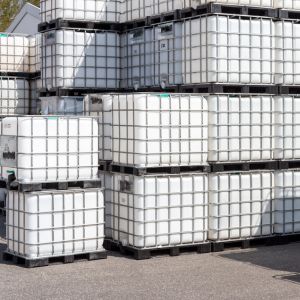 Plastic, often criticized for its environmental impact, can be used sustainably and contribute positively to various industries and the environment. Innovative approaches to plastic use are revolutionizing how we think about this versatile material. Read on to learn four sustainable uses for plastic you should know.
Plastic, often criticized for its environmental impact, can be used sustainably and contribute positively to various industries and the environment. Innovative approaches to plastic use are revolutionizing how we think about this versatile material. Read on to learn four sustainable uses for plastic you should know.
Recycled Plastic in Building Materials
One of the most promising sustainable uses of plastic is in the construction industry. Recycled plastics are transformed into building materials like bricks, panels, and roofing tiles. These materials are durable and resistant to weathering and help reduce construction waste. The building industry can decrease its reliance on new plastic production and contribute to a circular economy by incorporating recycled plastics.
Eco-Friendly Packaging Solutions
The packaging industry is another area where sustainable plastic is making waves. Companies are increasingly turning to biodegradable and compostable plastics for packaging. These materials break down more easily in the environment, reducing pollution and landfill waste. Additionally, the use of recycled plastics in packaging is growing, helping close the loop in plastic use and reduce the need for virgin plastic production.
Innovative Textiles from Recycled Plastic
Recycled plastic is also finding its way into the fashion industry as a material for textiles. Plastic bottles and other plastic waste are being converted into polyester fibers used in clothing and accessories. This gives a new life to plastic waste and provides a sustainable alternative to traditional polyester, which is petroleum-based and has a significant environmental footprint.
Intermediate Bulk Containers (IBCs)
IBCs (intermediate bulk containers) represent a chemical packaging trend and a sustainable use of plastic. These large containers are used for storing and transporting liquids and granulated substances. Made of durable plastic, they are designed for multiple uses, significantly reducing the need for single-use containers. The longevity and reusability of IBCs make them an environmentally friendly option in the logistics and storage sectors.
Now that you know these four sustainable uses for plastic, it’s evident that plastic, when used responsibly and innovatively, can contribute positively to sustainability efforts. From building materials and eco-friendly packaging to recycled textiles and IBCs, it’s clear that the key to sustainable plastic use lies in rethinking and repurposing. By embracing these innovative applications, we can move toward a more sustainable future while harnessing the practical benefits of plastic.
About Dan Coconate
Dan Coconate is a local Chicagoland freelance writer who has been in the industry since graduating from college in 2019. He currently lives in the Chicagoland area where he is pursuing his multiple interests in journalism.









